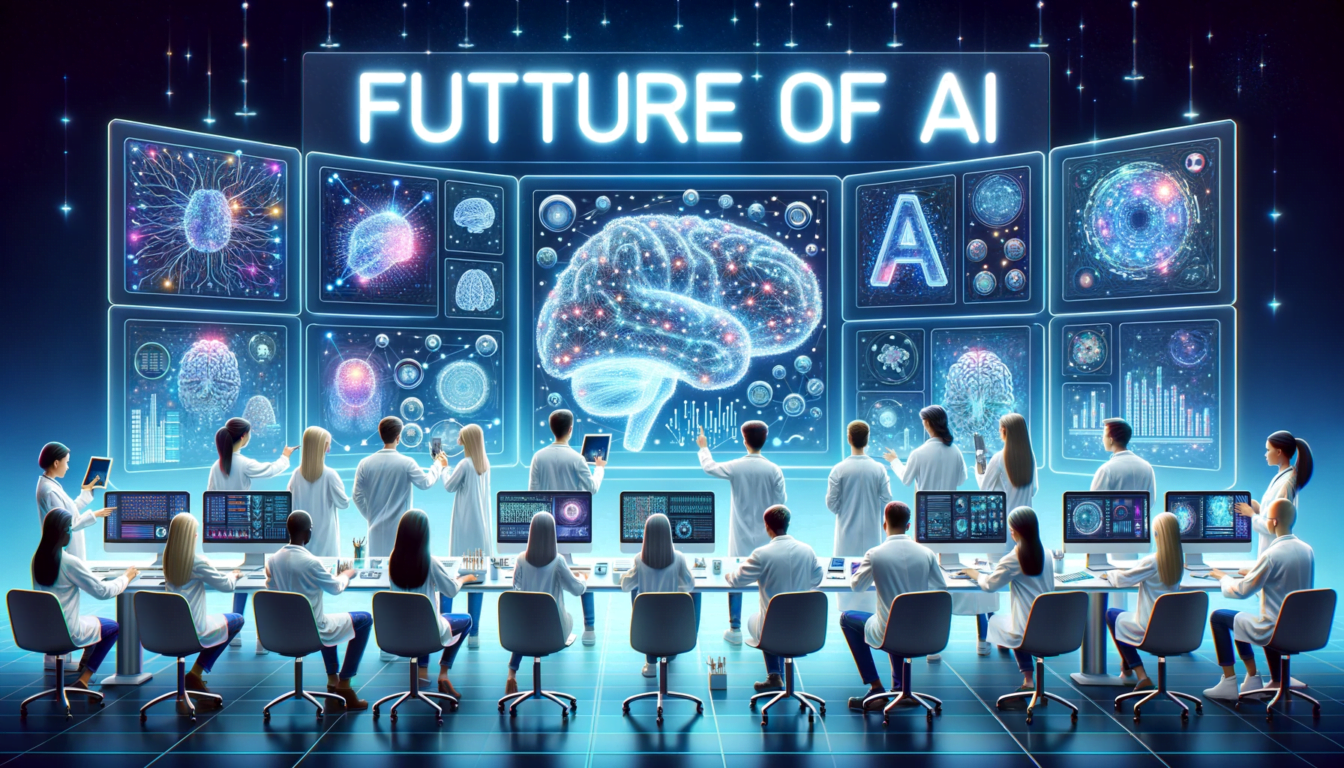As a professional copywriting journalist, I am excited to delve into the unchartered territory of the future of AI. The rapid advancements in artificial intelligence are revolutionizing various aspects of our lives, from healthcare to transportation, and beyond. It is essential to understand these developments, potential implications, and opportunities to stay ahead of the curve in this dynamic field.
Key Takeaways:
- The future of AI holds immense potential to transform our lives, industries, and society.
- The advancements in AI are shaping various aspects of our lives from healthcare to transportation.
- It is crucial to consider the ethical implications, prepare for the future of work, and embrace the collaborative potential of AI and humans.
- The AI revolution is just beginning, and the opportunities are endless.
- Stay ahead of the AI curve and embrace the future with open arms.
OpenAI CEO Sam Altman on the Future of AI
The Evolution of AI: Past to Present
As I explore the unchartered territory of the future of AI, it’s essential to understand how artificial intelligence has evolved over time. From its inception in the 1950s to where we stand today, AI has come a long way, and it’s remarkable to witness its journey.
At its core, AI is a subset of computer science that empowers machines to perform tasks that typically require human intelligence, including decision-making, language processing, and visual perception. It relies on machine learning and neural networks to acquire knowledge and learn from data.
The advancements in machine learning in recent years have been game-changing. Today, machines can teach themselves without explicit programming, and that has expanded the possibilities of AI. The future of AI is not just about machines that can do things that we do, but also to perform tasks that we can’t do.
The Future of AI: Artificial Intelligence and the Future of Humans
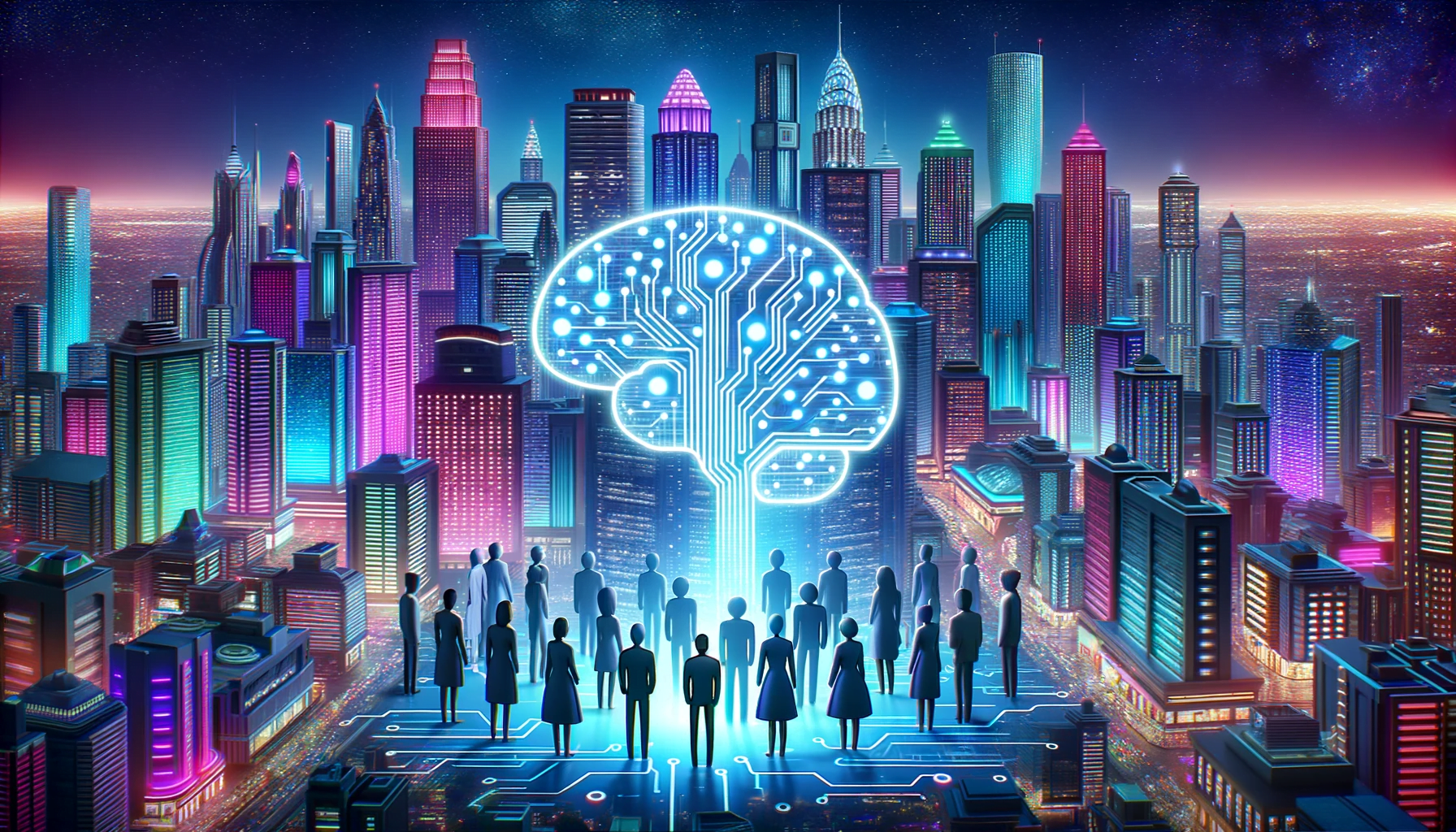
The future of AI will have a profound impact on not only industries and businesses but also on humans. AI has the potential to augment human capabilities and revolutionize the way we live and interact with the world around us. As AI evolves, we will move towards a world where humans and machines coexist and work collaboratively.
The implications of AI on the future of work are vast. AI-powered automation will lead to the displacement of some jobs, but it will also create new ones and change the nature of work. The skills required for jobs in the future will change too, with a greater focus on critical thinking and creativity.
AI has already made a significant impact on industries like healthcare, finance, and manufacturing. In healthcare, AI is being used for disease diagnosis, drug discovery, and personalized treatment. In finance, AI is revolutionizing risk management, fraud detection, and trading. In manufacturing, AI is driving automation and improving efficiency.
Machine Learning Advancements
Machine learning is a crucial aspect of AI that enables machines to learn from data without explicit programming. The advancements in machine learning have been remarkable in recent years, making it possible to train machines to perform complex tasks like playing chess, recognizing objects in images, and translating languages.
In the future, the applications of machine learning are endless. Deep learning, a subset of machine learning, has the potential to revolutionize industries like healthcare and finance. By using neural networks to analyze data, deep learning can detect patterns that humans may not be able to see.
As AI and machine learning continue to evolve, it’s essential to consider the ethical implications of their use. Bias and privacy concerns are two significant issues that must be addressed to ensure that AI is used for the greater good.
“It’s not about replacing humans with machines; it’s about empowering humans to do things that were previously impossible.”
The future of AI is bright, and the possibilities are endless. As we move forward, we must embrace the potential of AI to transform our lives while being mindful of the ethical considerations. It’s time to embrace the collaboration between humans and machines and usher in a new era of innovation.
AI and the Future of Work
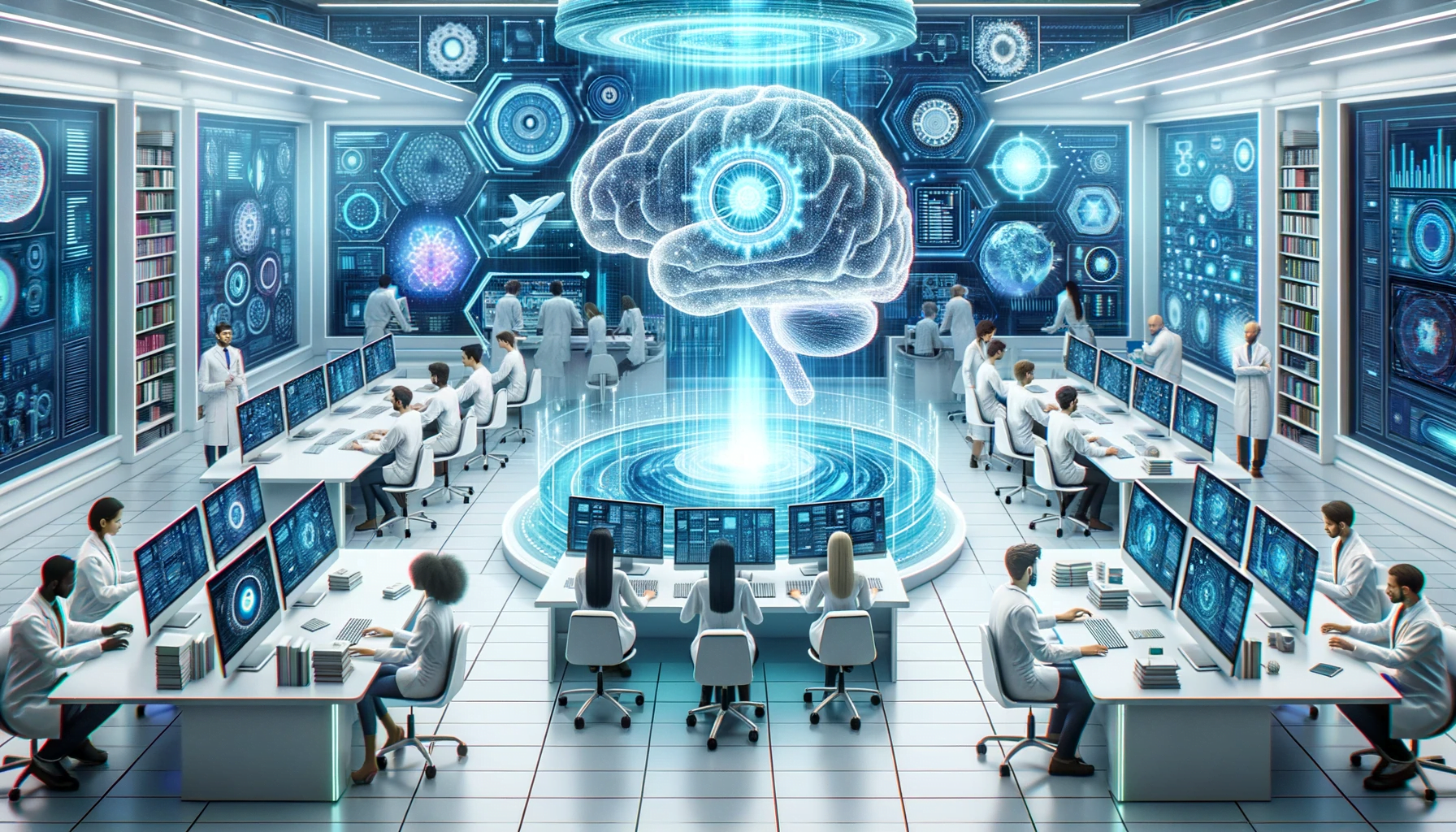
As I consider the future with AI, one of the most pressing concerns that comes to mind is its impact on the future of work. With the rise of AI technologies, it is no secret that industries and job roles are being reshaped, causing a shift in the skills and expertise required in the workplace.
The future of work with AI will inevitably bring both challenges and opportunities. On the one hand, the rapid advancements in automation and machine learning will lead to the displacement of some jobs. On the other hand, these same advancements will lead to the creation of new jobs and industries that never existed before.
It is crucial that we start preparing for the future of work with AI now. This means investing in education and training programs that equip individuals with the necessary skills to thrive in a future with AI. It also involves a cultural shift towards embracing change and innovation, rather than fearing it.
The AI future of work is likely to manifest in a way that augments human capabilities, rather than entirely replacing them. AI technologies will be integrated into various industries, providing valuable insights and efficiencies that humans alone would not have been able to achieve.
To achieve a future with AI that benefits both individuals and society as a whole, we must approach it with a forward-thinking and collaborative mindset. By combining the strengths of both humans and AI technologies, we can build a future that is both innovative and inclusive.
The Ethical Implications of AI.
As AI technologies continue to advance, there is growing concern about the ethical implications of their use. From privacy concerns to biases in decision-making, the potential risks of AI must be carefully considered.
One of the primary ethical concerns is the potential for AI to perpetuate biases, particularly in decision-making processes. AI systems are only as unbiased as the data they are trained on, and if that data reflects existing biases or discrimination, these biases will be perpetuated.
Another concern is the potential for AI to infringe on privacy rights. With the ability to collect vast amounts of data, AI systems can be programmed to analyze and interpret this data in ways that may not be in the best interest of individuals.
There is also the risk of job displacement as AI technology continues to evolve. While AI has the potential to improve efficiency and productivity, it may result in the loss of certain jobs and the need for individuals to acquire new skills to remain employable in the future.
As we continue to explore the possibilities of AI, it is crucial to address these ethical concerns and develop guidelines and regulations. AI must be developed and implemented in a manner that respects privacy rights, avoids perpetuating biases, and considers the impact on employment and broader societal implications.
AI Revolutionizing Healthcare
The healthcare industry is experiencing a significant transformation, with the integration of AI technologies. AI’s potential to analyze vast amounts of data at a faster rate than humans has revolutionized the field of healthcare.
The most significant advantage of AI in healthcare is its ability to enhance diagnostics. Machine learning algorithms can sift through large datasets of patient records, medical images, and test results, to provide accurate diagnoses, and identify previously undetected correlations among symptoms, genetic factors, and diseases. Early diagnosis is key to successful treatment outcomes, and AI is helping to make this a reality.
AI is also improving patient care in hospitals and clinics, reducing medical errors, and optimizing treatment plans. With predictive analytics and machine learning algorithms, healthcare providers can use real-time patient data to monitor patient health and intervene proactively in disease prevention and management. AI-powered chatbots and virtual assistants are also making healthcare more accessible, providing personalized medical advice, and scheduling appointments.
Another significant area of AI’s impact on healthcare is medical research. Machine learning algorithms can analyze vast volumes of data to identify new drug targets, predict drug efficacy and toxicity, and streamline the clinical trial process. The speed and accuracy of AI-powered research help to bring new treatments and therapies to market faster, ultimately saving lives.
The potential impact of AI on healthcare is immense, and we are only beginning to explore its full capacity. As the technology continues to evolve, we can only expect to see more significant advancements and innovations that will transform the way we provide, access, and receive healthcare.
The Future of Autonomous Vehicles
The future of transportation is set to be revolutionized with the advent of autonomous vehicles powered by AI. The possibilities are endless, and as we continue to innovate, we can expect massive advancements in this field.
According to experts, autonomous vehicles will not only enhance road safety, but they will also reduce the carbon footprint of transportation. By optimizing routes and speeds, AI-powered vehicles will help reduce traffic congestion and increase fuel efficiency.
While the future of autonomous vehicles looks promising, there are still some concerns that need to be addressed. One of the biggest challenges is ensuring the safety of passengers and pedestrians. Autonomous vehicles will need to be programmed to make rapid decisions in real-time, ensuring the safety of all individuals on the road. Additionally, cybersecurity threats pose a significant risk to the operation of autonomous vehicles.
The Advancements in Autonomous Vehicle Technology
Autonomous vehicle technology is undergoing massive advancements, paving the way for a future where we can rely on AI to drive us around safely and efficiently. Some of the technological advancements that hold immense potential for the future of autonomous vehicles include:
| Advancement | Description |
|---|---|
| LiDAR Sensors | LiDAR sensors offer a 3D view of the environment, allowing vehicles to detect and avoid obstacles in real-time. |
| Machine Learning Algorithms | Machine learning algorithms enable AI to learn from data, improving the accuracy of decision-making processes. |
| Computer Vision | Computer vision technology enables vehicles to recognize and interpret visual data, such as traffic signals and road signs. |
With these technological advancements, we can expect autonomous vehicles to become safer, more efficient, and more accessible to the general public.
The future of autonomous vehicles powered by AI is bright, and we can expect significant developments in this field in the years to come. As we continue to innovate and refine the technology, we can look forward to a future where transportation is safer, more efficient, and more sustainable than ever before.
AI and Robotics: A Synergistic Future
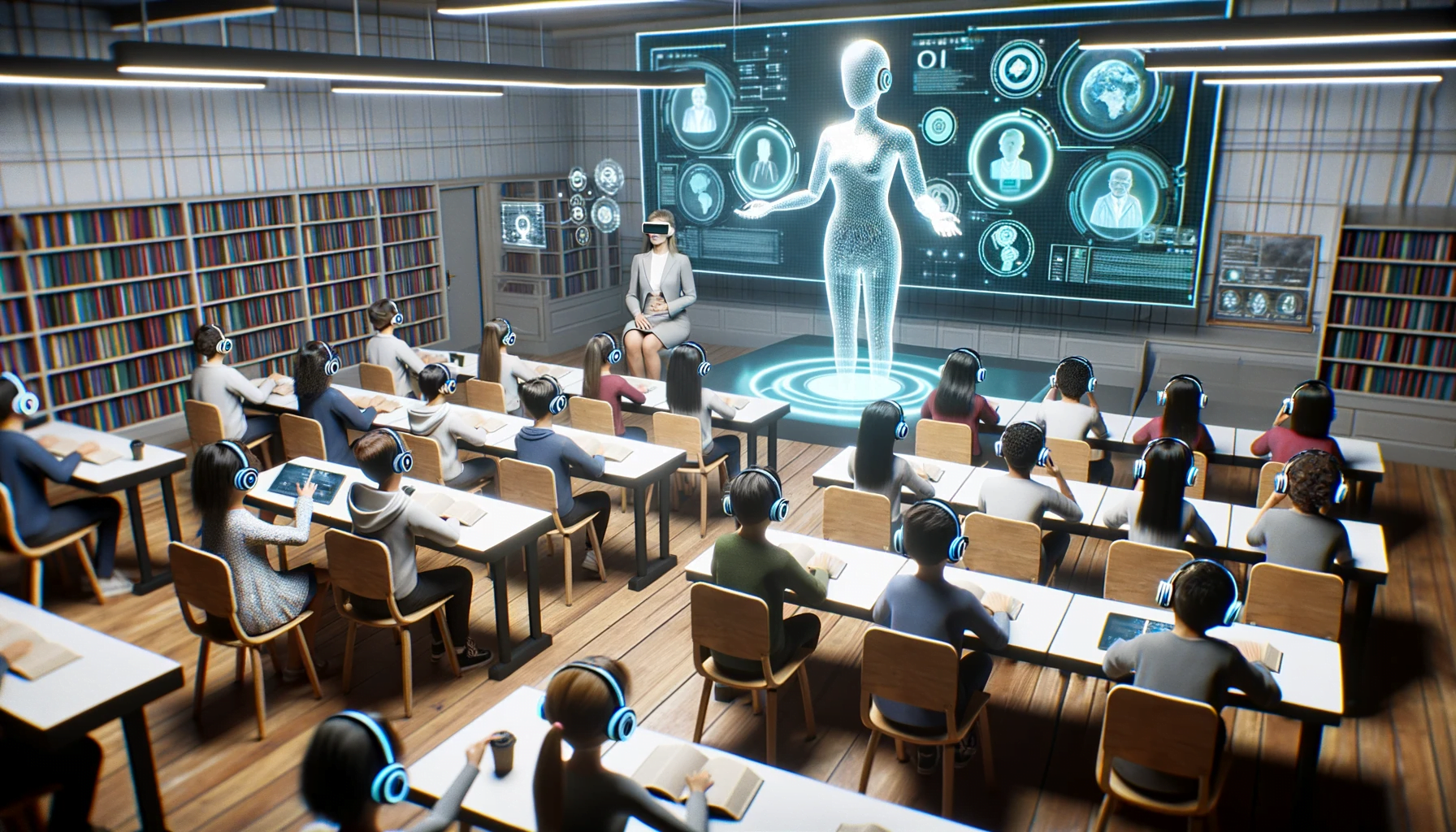
The future of robotics and AI holds immense potential to transform various industries, from manufacturing to healthcare. As the technologies continue to evolve, we can expect to witness exciting new developments in robotics and AI that will impact various domains.
While AI can help automate and optimize processes, robotics can provide physical labor and support to humans. The synergy between the two technologies can lead to unprecedented levels of efficiency, productivity, and innovation.
The future of robotics will be driven by advancements in AI. For instance, AI-powered robotic systems can be trained to learn and perform complex tasks that are currently difficult or impossible for humans to complete. Additionally, AI can help robots adapt to changing circumstances and environments, making them more versatile and adaptable.
One of the most promising areas of synergy between AI and robotics is in the field of healthcare. Medical robots powered by AI can help surgeons perform complex procedures with greater accuracy and precision, reducing the risk of human error. Furthermore, AI algorithms can analyze vast amounts of medical data and provide diagnostic insights, helping doctors make more informed decisions.
Another area where the synergy between AI and robotics can be leveraged is in the field of manufacturing. Robots can take care of tasks that are repetitive, dangerous, or require precision, while AI can help improve the efficiency and accuracy of these tasks. This can lead to faster turnaround times, reduced costs, and improved product quality.
The future of robotics and AI also holds potential in the field of transportation. From self-driving cars to AI-powered drones, these technologies can help optimize transportation logistics, reduce traffic congestion, and improve safety on the roads and in the air.
Start earning effortlessly! Claim your $3 bonus and monetize your unused data with Honeygain. It’s simple, secure, and smart.
Claim Nowand watch your balance grow! 🍯💸
The synergy between robotics and AI is not limited to these industries alone. As the technologies continue to evolve, we can expect to see their impact across various domains, from education to entertainment.
Conclusion
As we look to the future with optimism, the synergy between AI and robotics holds immense potential to transform various industries and augment human capabilities. It is crucial to remain aware of the opportunities and challenges presented by these technologies, and work towards creating a collaborative future that benefits both humans and machines.
AI Technology of Tomorrow
As we look to the future, it’s clear that AI technology will continue to evolve and expand in ways we can’t even imagine. With the rise of big data and the increasing power of machine learning, the potential applications for AI are virtually limitless. Here are some of the upcoming AI technologies to keep an eye on:
| Technology | Description |
|---|---|
| Quantum AI | Combining quantum computing and AI to solve complex problems and accelerate machine learning. |
| Edge AI | Bringing AI processing to devices at the edge of the network, such as IoT devices and smartphones, for faster and more efficient computing. |
| Explainable AI | Developing AI systems that can explain their decision-making process to humans, increasing transparency and trust. |
| Generative AI | Creating AI models that can generate original content, such as art, music, or even writing. |
| AI-powered Cybersecurity | Using AI to detect and prevent cyber threats in real time, making networks and data more secure. |
These are just a few examples of the upcoming AI technologies that are poised to transform our world. As these technologies continue to evolve, they have the potential to revolutionize industries, solve complex problems, and improve our daily lives in ways we can’t yet imagine. The future of AI is truly exciting.
The Impact of AI on Society

As we continue to witness the rapid advancements in AI technology, its impact on society is becoming increasingly profound.
One significant area of impact is education. With AI-powered tools, educators can analyze learning patterns and personalize education plans to suit individual needs. Additionally, AI can aid in curriculum development and improve accessibility to education.
The economy is also experiencing the impact of AI. Automated systems are streamlining production and reducing labor costs, while AI-powered predictive analytics are enhancing decision-making processes. However, this automation also raises concerns about job displacement and the need for reskilling the workforce.
AI is also transforming governance, as governments are leveraging AI to improve public services and policy-making. From predictive policing to fraud detection, AI is enabling data-driven decision making, increasing efficiency, and enhancing accountability.
Social dynamics are also being impacted by AI. Social media algorithms powered by AI are shaping our online experience, influencing our beliefs and behaviors. As AI becomes more integrated into daily life, it’s crucial to ensure that it is designed ethically and transparently to avoid amplifying biases and discrimination.
The impact of AI on society is vast and complex, and it’s important to consider both the opportunities and challenges. We must address the ethical implications and ensure that AI is developed and deployed in a responsible and equitable manner.
The Future of Machine Learning
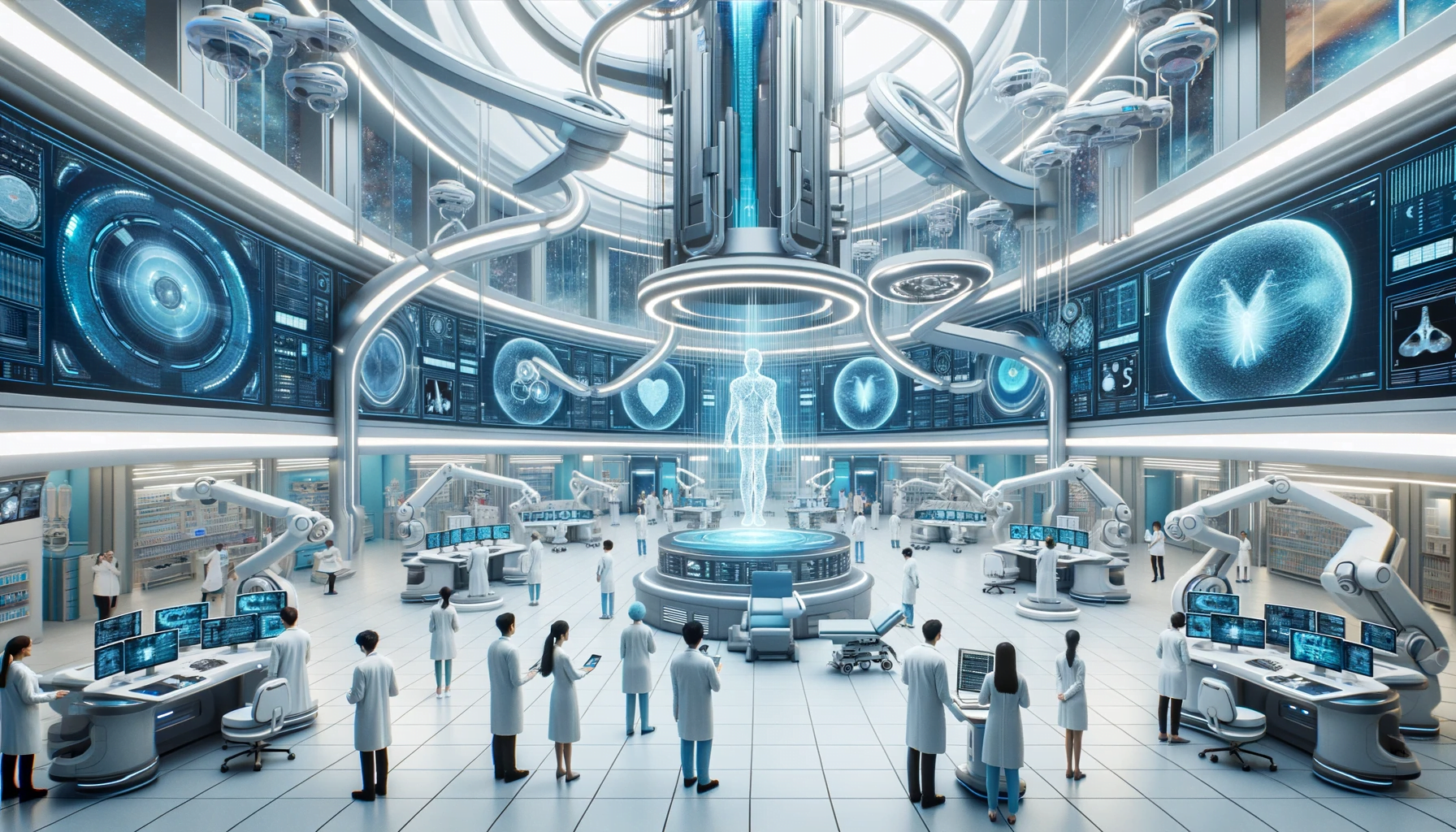
As AI continues to evolve, the future of machine learning is a topic of increasing interest. Machine learning algorithms enable computers to learn from data and make predictions or decisions without being specifically programmed for each task.
One of the most exciting areas of development in machine learning is deep learning. Deep learning involves the use of neural networks with multiple layers to analyze and learn from data. This approach has proven to be highly effective in tasks such as image and voice recognition, natural language processing, and autonomous driving.
The future of machine learning also entails the development of more sophisticated algorithms that are capable of handling large amounts of complex data. These algorithms will enable AI systems to make more accurate predictions and decisions, particularly in fields such as healthcare, finance, and cybersecurity.
In addition, the continued growth of big data and the Internet of Things (IoT) will provide even more opportunities for machine learning to thrive. With the increasing amount of data being generated, machine learning will become an indispensable tool for processing and making sense of this data.
The future of machine learning also raises questions about the impact on jobs and the workforce. While it is clear that AI and machine learning will transform the nature of work in many industries, the extent of this impact remains to be seen. It will be essential for individuals, businesses, and governments to adapt and prepare for the changes that lie ahead.
In conclusion, the future of machine learning holds immense potential for transforming industries and society. As we continue to develop and refine these technologies, it is important to consider the ethical implications and prepare for the changing landscape of work. The future of machine learning is an exciting and dynamic field that will continue to shape our world in countless ways.
AI: A Collaborative Future with Humans
The future of AI is not a dystopian one in which machines rule the world and humans are made redundant. Instead, it is one in which AI and humans work in collaboration to achieve greater heights of innovation.
AI has already proven itself to be a valuable tool in various sectors, from healthcare to transportation, and its potential is just beginning to be realized. As AI continues to advance, it will become increasingly important for humans to work hand-in-hand with intelligent machines to drive progress.
One of the key benefits of AI is its ability to process large amounts of data and identify patterns that would be difficult for humans to detect. By using AI to augment human capabilities, we can achieve more accurate and efficient results in various fields, from finance to scientific research.
However, it is important to note that AI is not a replacement for human intelligence or creativity. Machines lack the intuition and emotional intelligence that humans possess, and this human touch is often crucial in decision-making processes.
Therefore, the future of AI is not one in which machines replace humans, but rather one in which they work together to achieve a common goal. This partnership between humans and AI will require a new set of skills and expertise, and it is crucial for us to start planning for this collaborative future.
As we move forward, we must also ensure that the ethical implications of AI are carefully considered. Humans must remain at the forefront of decision-making processes, and we must ensure that AI is used for the greater good of society, rather than simply for profit or personal gain.
In conclusion, the future of AI is not a stark choice between humans and machines, but rather a collaborative future in which we work together to achieve greater heights of progress and innovation. By embracing this future, we can ensure that AI is used for the benefit of all humanity.
Conclusion
As I explored the unchartered territory of the future of AI, I realized the immense potential it holds. From revolutionizing healthcare to reshaping industries and impacting society, the possibilities are endless. The AI revolution is just beginning, and it is essential to prepare for the future of work, consider the ethical implications, and embrace the collaborative potential of AI and humans.
The AI revolution is undoubtedly an exciting time, but it also comes with challenges that we must address. We must be aware of the risks, biases, and privacy concerns associated with the use of AI technologies and work towards developing ethical guidelines.
As we look forward to the future of AI, it is crucial to keep an eye on the emerging AI technologies that hold immense potential. With advancements in machine learning and deep learning, we can expect to see AI revolutionize various sectors and drive innovation.
In conclusion, the future of AI is a bright one, and the opportunities are endless. We must embrace the potential of AI and work towards creating a collaborative future with humans. The AI revolution is here to stay, and we must prepare ourselves to stay ahead of the curve.
FAQ
What is the future of AI?
The future of AI holds immense potential to transform various aspects of our lives and industries. It encompasses advancements in machine learning, robotics, and data analysis, among other areas.
How has AI evolved over time?
AI has come a long way since its inception. It has evolved from basic rule-based systems to sophisticated machine learning algorithms that can analyze large datasets and make predictions with high accuracy.
What impact will AI have on the future of work?
AI is reshaping industries and job roles. It has the potential to automate repetitive tasks, increase efficiency, and drive innovation. It will also require a shift in skills required in the workplace.
What are the ethical implications of AI?
AI raises ethical concerns such as privacy, bias, and potential risks associated with its use. It is important to consider these implications and develop ethical frameworks to guide its development and deployment.
How is AI revolutionizing healthcare?
AI is transforming healthcare by enhancing diagnostics, improving patient care, and revolutionizing medical research. It can analyze medical data at scale, assist in disease diagnosis, and aid in personalized treatment plans.
What is the future of autonomous vehicles?
Autonomous vehicles powered by AI hold immense potential for the future. They have the potential to improve transportation safety, reduce traffic congestion, and revolutionize the way we travel.
How do AI and robotics synergize?
AI and robotics have a synergistic relationship, with AI powering advancements in robotic technology. This has implications for industries such as manufacturing, healthcare, and agriculture, among others.
What are some upcoming AI technologies?
Emerging AI technologies include deep learning, natural language processing, and computer vision. These technologies have the potential to revolutionize various sectors, including healthcare, finance, and transportation.
How does AI impact society?
AI has a broad impact on society, influencing education, economy, governance, and social dynamics. It presents both opportunities and challenges in terms of job displacement, privacy, and socioeconomic inequality.
What is the future of machine learning?
The future of machine learning holds promise in areas such as deep learning, neural networks, and advanced data analysis. Machine learning algorithms will continue to evolve and drive innovation in various domains.
How can humans collaborate with AI in the future?
The future envisions a collaborative relationship between humans and AI, where AI augments human capabilities and drives innovation. This collaboration can lead to transformative advancements across sectors.

